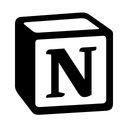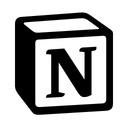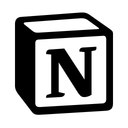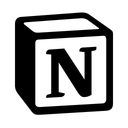Todoist vs Notion (2025 Comparison)

Todoist is a powerful task management tool with an intuitive interface and robust mobile app. Its seamless offline access ensures productivity even in areas with limited connectivity.
- Intuitive task management interface
- Robust mobile app
- Seamless offline access
- Limited customization options
- Basic collaboration features
Free plan?
YesStarting price
$4 per month
Notion offers highly customizable workspaces and comprehensive collaboration tools. Its extensive template library makes it an ideal choice for users seeking a versatile productivity solution.
- Highly customizable workspaces
- Comprehensive collaboration tools
- Extensive template library
- Steep learning curve
- Limited offline functionality
Free plan?
YesStarting price
$10 per month per userWhat is Todoist?
Todoist is a task management tool designed to help individuals and teams organize their tasks and projects efficiently. It offers features like task prioritization, project templates, and collaboration tools, making it ideal for both personal and professional use. With Todoist, you can easily track your progress, set deadlines, and integrate with other productivity tools, ensuring you stay on top of your daily responsibilities.
What is Notion?
Notion is a versatile productivity software that combines note-taking, task management, and collaboration features into one platform. It allows users to create customized workspaces with databases, calendars, and kanban boards, making it suitable for a wide range of applications, from personal organization to team collaboration. Notion's flexibility and integration capabilities help users streamline their workflows and enhance productivity.
Pros and Cons of Todoist vs Notion

Pros & Cons of Todoist
- Todoist offers a user-friendly interface that makes task management simple and efficient. Its intuitive design allows users to quickly add, organize, and prioritize tasks, making it an excellent choice for those who value ease of use.
- The Todoist mobile app is highly rated for its functionality and ease of use. It allows users to manage tasks on the go, ensuring productivity is maintained even when away from a computer.
- Todoist provides seamless offline access, allowing users to manage tasks without an internet connection. This feature is particularly useful for users who need to work in areas with limited connectivity.
- While Todoist offers some customization, it lacks the extensive options available in other tools like Notion. Users looking for highly personalized workspaces may find Todoist's customization options limited.
- Todoist offers basic collaboration features, but it may not be sufficient for teams that require advanced collaboration tools. Users seeking comprehensive collaboration capabilities may need to look elsewhere.

Pros & Cons of Notion
- Notion allows users to create highly customizable workspaces, offering a wide range of templates and layouts. This flexibility makes it an ideal choice for users who want to tailor their workspace to their specific needs.
- Notion excels in collaboration with its ability to create shared workspaces and real-time editing features. These tools make it an excellent choice for teams that need to collaborate effectively.
- Notion provides an extensive library of templates for various use cases, making it easy for users to get started with any project. This feature is particularly useful for users who rely on templates to streamline their workflows.
- Notion's extensive features and customization options can be overwhelming for new users, resulting in a steep learning curve. Users may need to invest time in learning the platform to fully leverage its capabilities.
- While Notion offers offline access, its functionality is limited compared to other tools like Todoist. Users who frequently work offline may find Notion's offline capabilities insufficient for their needs.
Todoist vs Notion: At A Glance
Value to Price
Both Todoist and Notion offer great value for their price, but Notion edges out with its extensive features and flexibility. Todoist is excellent for task management, but Notion's all-in-one platform provides more bang for your buck, especially if you need a comprehensive solution.
Ease of Use
Notion's interface is intuitive and user-friendly, making it easy for new users to get started. Todoist is also straightforward, but Notion's drag-and-drop functionality and customizable templates make it slightly easier to navigate and personalize.
Functionality
Notion excels in functionality with its ability to create databases, wikis, and more. Todoist is focused on task management, which it does exceptionally well, but Notion's versatility makes it a more functional tool for diverse needs.
Scalability
Notion's scalability is impressive, allowing teams to grow and adapt their workspaces as needed. Todoist is scalable for task management, but Notion's ability to handle complex projects and team collaboration makes it more suitable for larger teams.
Integrations
Both tools offer a range of integrations, but Notion's ability to integrate with various apps and services gives it a slight edge. Todoist integrates well with productivity tools, but Notion's broader integration capabilities make it more versatile.
Customer Support
Todoist provides reliable customer support, but Notion's support is more comprehensive, offering detailed guides and community forums. Both tools offer good support, but Notion's resources make it easier for users to find solutions independently.
Security
Security is a priority for both Todoist and Notion, with both offering robust security measures. Notion's additional features, such as two-factor authentication, provide an extra layer of security, making it slightly more secure.
Overall Rating
Overall, Notion scores higher due to its versatility and comprehensive features. Todoist is a strong contender for task management, but Notion's all-in-one platform makes it a more attractive option for users seeking a complete productivity solution.
Todoist vs Notion: A Detailed Breakdown of Key Features
Task Management
Todoist shines in task management with its intuitive interface and robust features like task prioritization and recurring tasks. Notion also offers task management capabilities, but Todoist's focus on this area makes it a more efficient tool for managing tasks. If your primary need is task management, Todoist is the better choice.
Collaboration
Notion excels in collaboration with its ability to create shared workspaces and real-time editing features. Todoist offers collaboration tools, but Notion's comprehensive suite of features makes it more suitable for team collaboration. If you need a tool for team collaboration, Notion is the way to go.
Customization
Notion offers unparalleled customization options, allowing users to create personalized workspaces with various templates and layouts. Todoist provides some customization, but Notion's flexibility makes it the better choice for users who want to tailor their workspace to their specific needs.
Templates
Notion provides a wide range of templates for different use cases, making it easy to get started with any project. Todoist offers templates as well, but Notion's extensive library and customization options make it the superior choice for users who rely on templates.
Mobile App
Todoist's mobile app is highly rated for its user-friendly interface and offline capabilities. Notion's mobile app is also well-designed, but Todoist's focus on mobile usability makes it the better option for users who need a reliable mobile task management tool.
Offline Access
Todoist offers robust offline access, allowing users to manage tasks without an internet connection. Notion provides offline access as well, but Todoist's seamless offline functionality makes it the preferred choice for users who need to work offline frequently.
Pricing Comparison of Todoist and Notion
To assist you in making an informed choice, we’ve outlined the pricing plans and essential features of Todoist and Notion. This comparison will highlight the best option for managing your tasks and projects.

Todoist Pricing Plans
- Smart quick add for efficient task management.
- Flexible list and board layouts for organization.
- 3 filter views to customize your workflow.
- 1 week activity history to track progress.
- Calendar layout to visualize your schedule.
- Task reminders and duration for timely completion.
- 150 filter views for advanced customization.
- Unlimited activity history for comprehensive tracking.
- Up to 500 team projects for large-scale management.
- Granular team activity logs for detailed insights.
- Shared templates to streamline processes.
- Team roles and permissions for structured access.

Notion Pricing Plans
- Collaborate with friends, family & colleagues on your pages.
- Basic page analytics to track interactions.
- Restore your page to a previous version with 7-day history.
- Invite up to 10 guests to collaborate.
- Unlimited file uploads for seamless data management.
- 30-day page history for better version control.
- Invite up to 100 guests for broader collaboration.
- Custom websites with Google Analytics integration.
- Private teamspaces for sensitive information.
- Bulk PDF export for legal or compliance backups.
- Advanced page analytics for detailed insights.
- Invite up to 250 guests for extensive collaboration.
- Advanced security & controls for enhanced protection.
- Audit log for tracking security-related activities.
- Customer success manager for expert guidance.
- Unlimited page history for comprehensive version tracking.
Our Rating Methodology
We thoroughly evaluate each productivity tool, focusing on key factors like functionality, ease of use, and scalability. By analyzing user reviews and testing features, we ensure our recommendations fit your needs. Each factor is weighted to provide an accurate final rating, helping you make informed decisions.
Todoist or Notion: Which One Matches Your Business Needs?
Choose Todoist If You Need ...
- Intuitive task management tool
If you are looking for a **simple and efficient task management tool**, Todoist is the ideal choice. Its intuitive interface and robust mobile app make it easy to manage tasks on the go, ensuring productivity is maintained.
- Reliable offline access
If you need a tool with **seamless offline access**, Todoist is the better option. Its offline functionality allows you to manage tasks without an internet connection, making it perfect for users who frequently work in areas with limited connectivity.
Choose Notion If You Need ...
- Versatile productivity solution
If you need a **highly customizable and versatile productivity solution**, Notion is the way to go. Its comprehensive collaboration tools and extensive template library make it ideal for users seeking a complete productivity platform.
- Comprehensive collaboration tools
If you require **advanced collaboration features**, Notion is the better choice. Its ability to create shared workspaces and real-time editing capabilities make it perfect for teams that need to collaborate effectively.
Frequently Asked Questions
 Which tool is better for task management, Todoist or Notion?
Which tool is better for task management, Todoist or Notion?
 Is Notion suitable for team collaboration?
Is Notion suitable for team collaboration?
 Can Todoist be used offline?
Can Todoist be used offline?
 Does Notion offer customization options?
Does Notion offer customization options?
 Which tool offers better mobile app functionality?
Which tool offers better mobile app functionality?
 Is Notion's learning curve steep?
Is Notion's learning curve steep?

Anastasia Belyh
Anastasia Belyh is a senior tech writer with over 15 years of experience in marketing, sales, and business software. Having worked in investment banking, management consulting, and founded multiple companies, her in-depth knowledge and hands-on expertise make her software reviews authoritative, trustworthy, and highly practical for business decision-makers.



